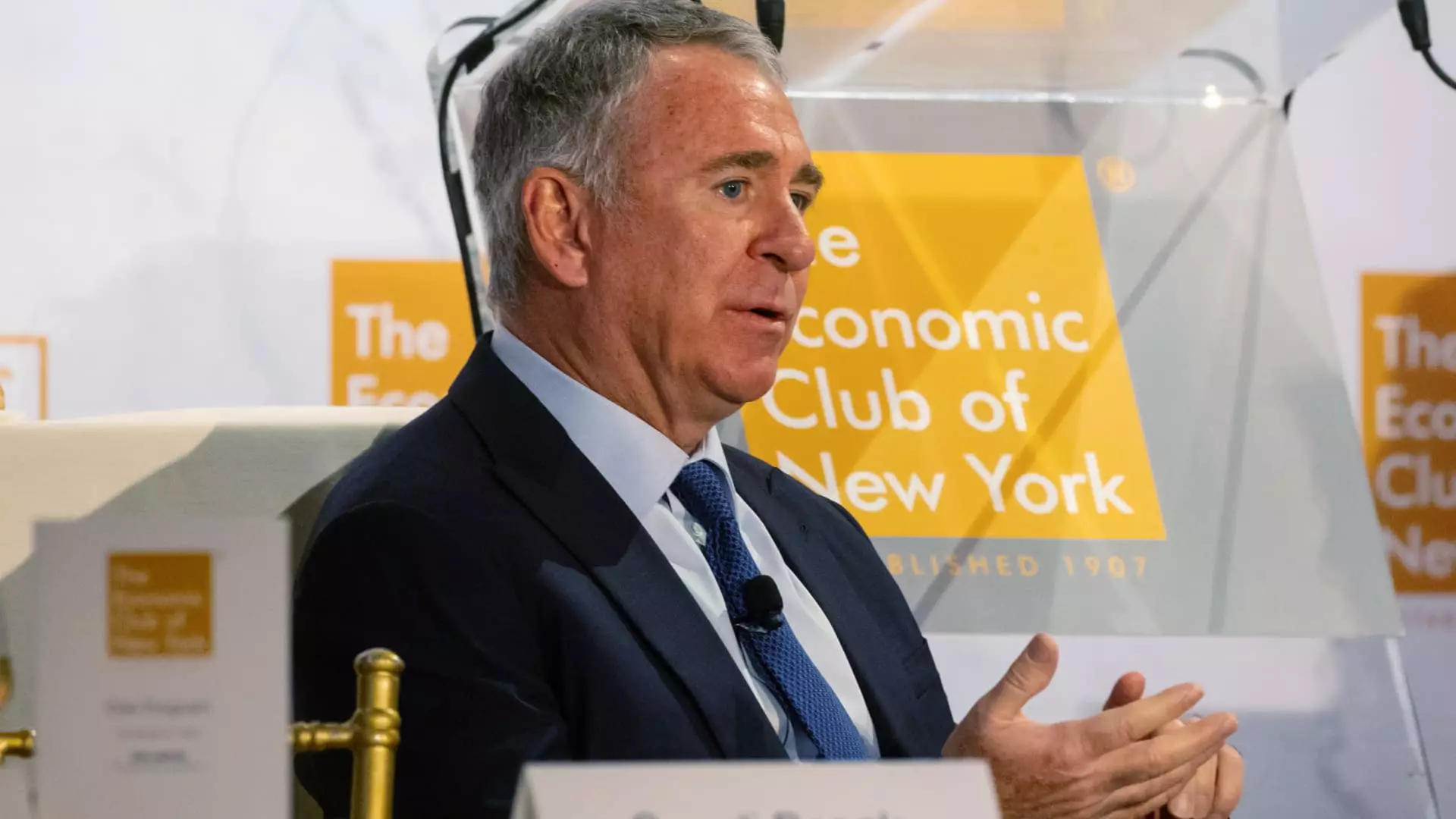In recent discussions regarding the economic policies of President-elect Donald Trump, Ken Griffin, the CEO of Citadel, has raised urgent concerns over the potential implementation of steep tariffs. Griffin’s warnings at the Economic Club of New York highlight a profound apprehension about the implications of such protectionist strategies. While tariffs might seem beneficial to domestic industries in the short term, the long-term consequences could be detrimental, leading to a landscape rife with crony capitalism. This refers to an economic environment where business leaders and policymakers foster mutually beneficial relationships, often at the expense of competitiveness and consumer welfare.
Griffin underscored that temporary relief from competition can create a false sense of security for domestic companies. The initial advantages of reduced competition might foster a complacent attitude, with businesses less inclined to innovate or improve their products and services. This complacency ultimately weakens their position both in the domestic and global markets. As Griffin articulated, as these companies begin to take their newfound market power for granted, they risk becoming less responsive to the evolving demands of consumers. This stagnation could undermine the very efficiency and productivity that are essential for sustained economic growth.
The proposed tariff structure, including potential rates of 20% on imports and a staggering 60% on Chinese goods, raises significant concerns about consumer prices. Tariffs can lead to costlier production, which, in turn, may result in higher prices for everyday goods. As the world grapples with inflationary pressures stemming from the pandemic, an abrupt spike in costs could further strain consumers’ finances. Griffin cautioned that such a protective measure could amplify the clout of special interest groups in Washington, leading to a cycle of ever-increasing tariffs aimed at shielding inadequately competitive American businesses instead of fostering true market efficiency.
A healthy economy thrives on competition, which drives innovation and ensures that consumer needs are met efficiently. Griffin’s insights serve as a rallying cry for the necessity of a market system that encourages rather than stifles competition. By prioritizing short-term gains through tariffs, there is a risk of creating an economic framework where inefficiencies are protected rather than challenged. This could detrimentally affect American consumers, who would potentially be left with fewer choices and higher prices.
Amid these economic discussions, Griffin also addressed the future of Citadel itself, asserting that there are no immediate plans to take Citadel Securities public. By focusing on building the business privately and investing in long-term growth strategies, the company aims to navigate this challenging economic landscape. Griffin’s emphasis on the benefits of remaining private during rapid growth reflects a broader strategy aimed at ensuring resilience and adaptability in a shifting market environment.
Griffin’s remarks underscore the critical need for a balanced evaluation of economic policies that prioritize long-term competitiveness over short-sighted gains. The trajectory of American industry and consumer welfare hangs in the balance as these discussions continue to unfold.

